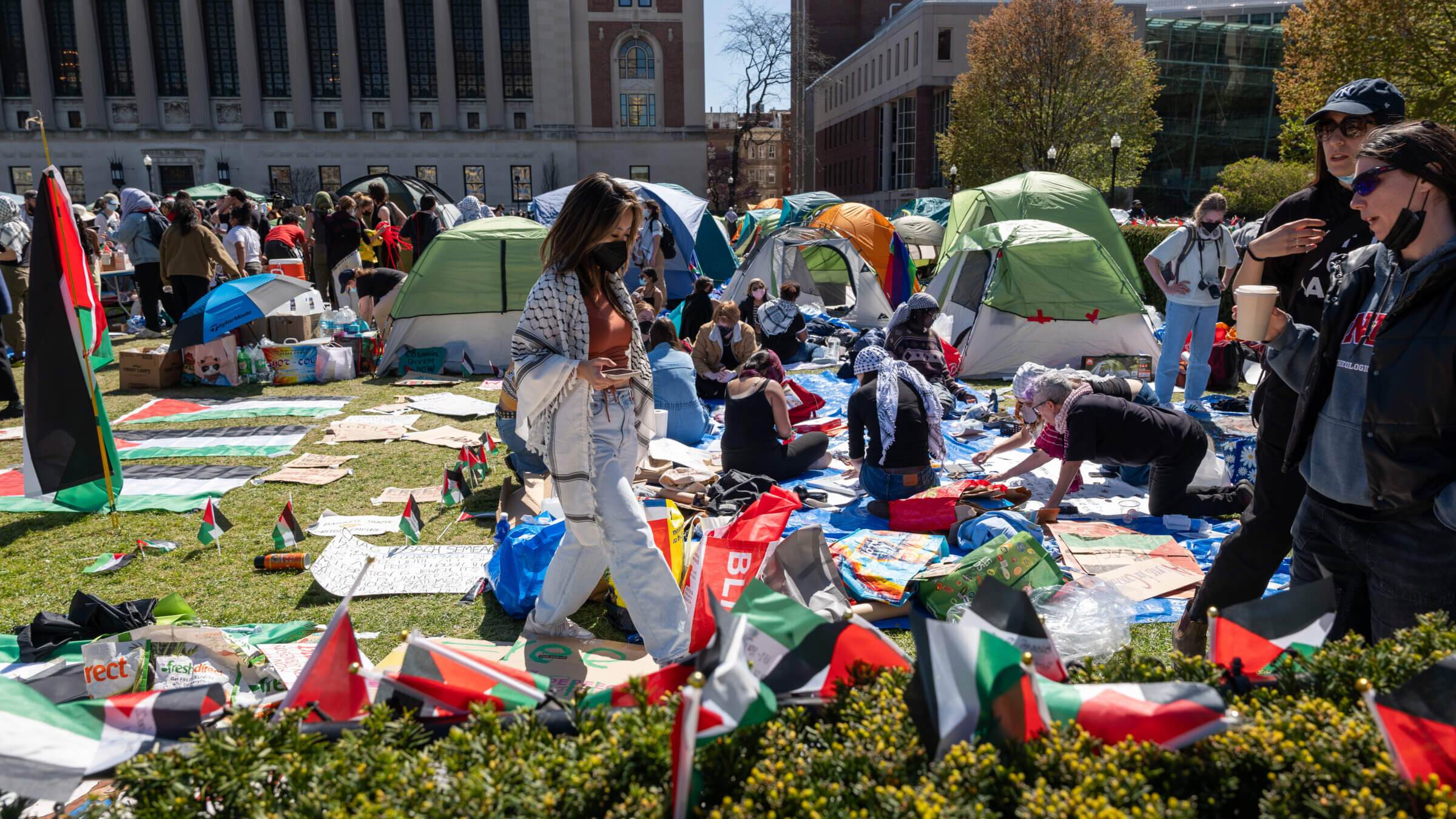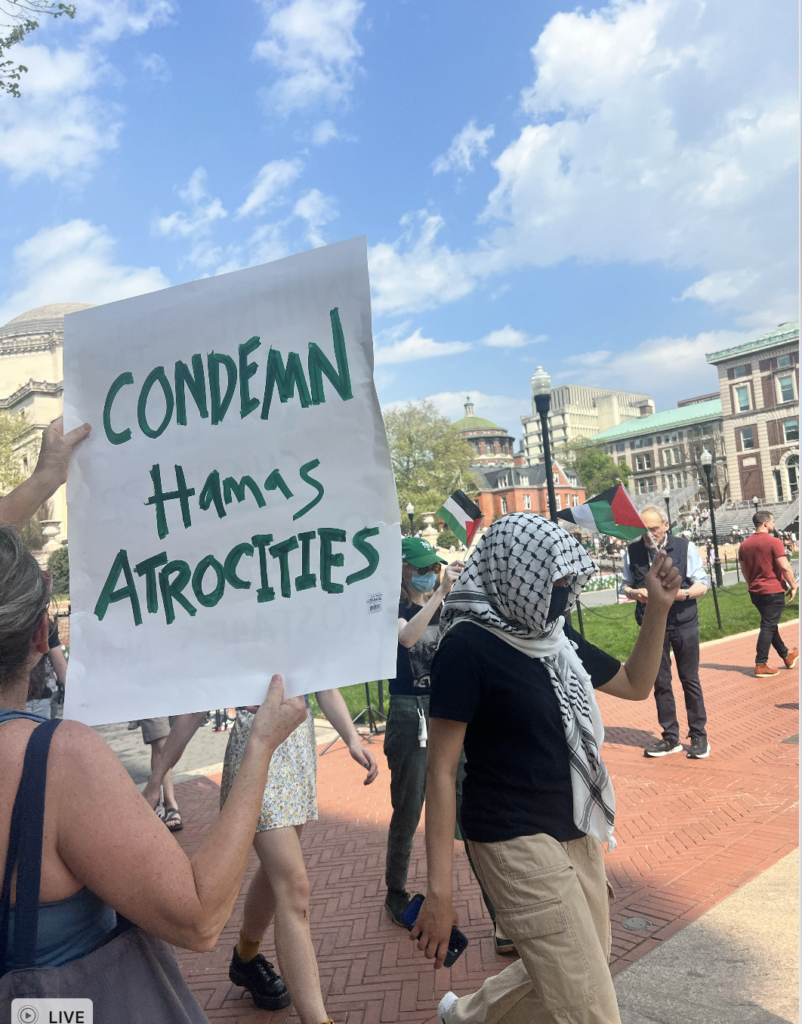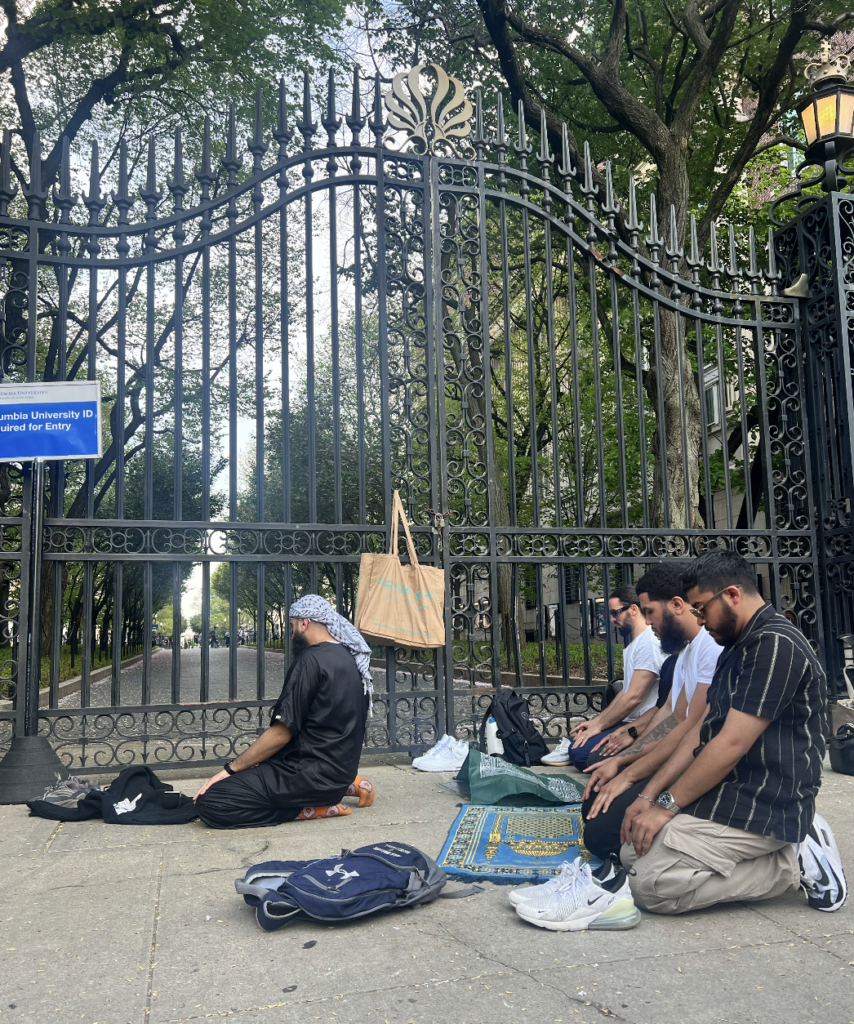Columbia begins suspending student protesters after calling off negotiations
No arrests of protesters so far

A Pro-Palestinian protest encampment at Columbia University. Photo by Getty Images
Columbia has begun suspending students Monday afternoon after setting a 2 p.m. deadline for them to leave the “Gaza Solidarity Encampment” in the center of campus.
University spokesperson Ben Chang announced the suspensions as dozens of students remained in the encampment on the last day of classes this semester.
Some of the protesters worried that the suspensions presaged arrests, in that a suspended student no longer has a right to be on Columbia property and could be charged with trespassing. Columbia called in New York City police on April 18, when they arrested more than 100 student protesters.
“It is important for you to know that the University has already identified many students in the encampment,” the notice to the protesters read, according to the Columbia Spectator, the student newspaper. “If you do not leave by 2 p.m., you will be suspended pending further investigation.”
The university also told the larger Columbia community in a statement Monday, the last day of classes, that talks with the protesters had broken down and that the university would not divest from Israel, one of the protesters’ key demands.
Protesting students voted at noon to to stay, the Spectator reported.

A sign pinned to a student’s backpack, written on the university’s notice requiring protesters to leave the encampment, read “Suspension for Gaza is the highest honor. Viva Palestina!”
Hundreds of students flooded campus in the afternoon to show support to those in the encampment.
Police arrested at least two people on the periphery of the encampment on Monday, including one on the streets outside campus who had climbed a lamppost.
Administrators had been negotiating with a small group of students since Wednesday to “find a path that would result in the dismantling of the encampment,” and to make sure they followed university rules on protesting, Columbia president Nemat Shafik said in her statement Monday. “Regretfully, we were not able to come to an agreement.”
Columbia, the epicenter of a national movement in which college students are demanding divestment from Israel and an end to its military campaign in Gaza, is at an especially tense moment. Only those holding Columbia University identification are allowed in campus, and many wonder if Shafik will once again call in the NYPD to arrest those in what protesters call the “Gaza Solidarity Encampment.” While they were detained, a larger encampment sprung up in its place.
ACTION ALERT:
— Columbia Students for Justice in Palestine (@ColumbiaSJP) April 29, 2024
- Columbia University admin threatens MASS SUSPENSIONS and DISCIPLINARY PROBATION (until June 2025) to Gaza Solidarity Encampment participants who don’t leave by 2 PM.
- Do not sign anything with administration.
- Show up at NOON to protect the encampment! ❤️🔥 pic.twitter.com/v1Qw5gXu0q
Journalists with WKCR, the Columbia student radio station, reported earlier in the afternoon that officers inside campus had stockpiled a “substantial” amount of zip ties, the sort used to bind the wrists during arrests.
At least 20 faculty members and staff linked arms in what they call a “soft barrier” next to the encampment. Some said they would stay overnight to protect students. Several police buses were parked a few blocks from campus, in Manhattan’s Morningside Heights neighborhood.

Mainstream media, as opposed to student press which has maintained a constant presence during the protests, was allowed onto campus at 2 p.m. In recent days they have been admitted between 2 and 4 p.m.
A small number of protesters waved Israeli flags, or signs to call attention to the hostages Hamas kidnapped from Israel on Oct. 7. Outside the campus gates, a few Muslims prayed on prayer rugs.

Meanwhile, at Brown University, President Christina Paxson informed protesting students on Monday that they could address The Corporation of Brown University, which decides on investment policies, if they dismantle their encampment in the center of campus. She did not, however, agree to give amnesty to the more than 40 students arrested in December after they refused to leave a university building. Students have yet to officially respond to the offer.
JTA and Eleanor Reich contributed to this report.





















